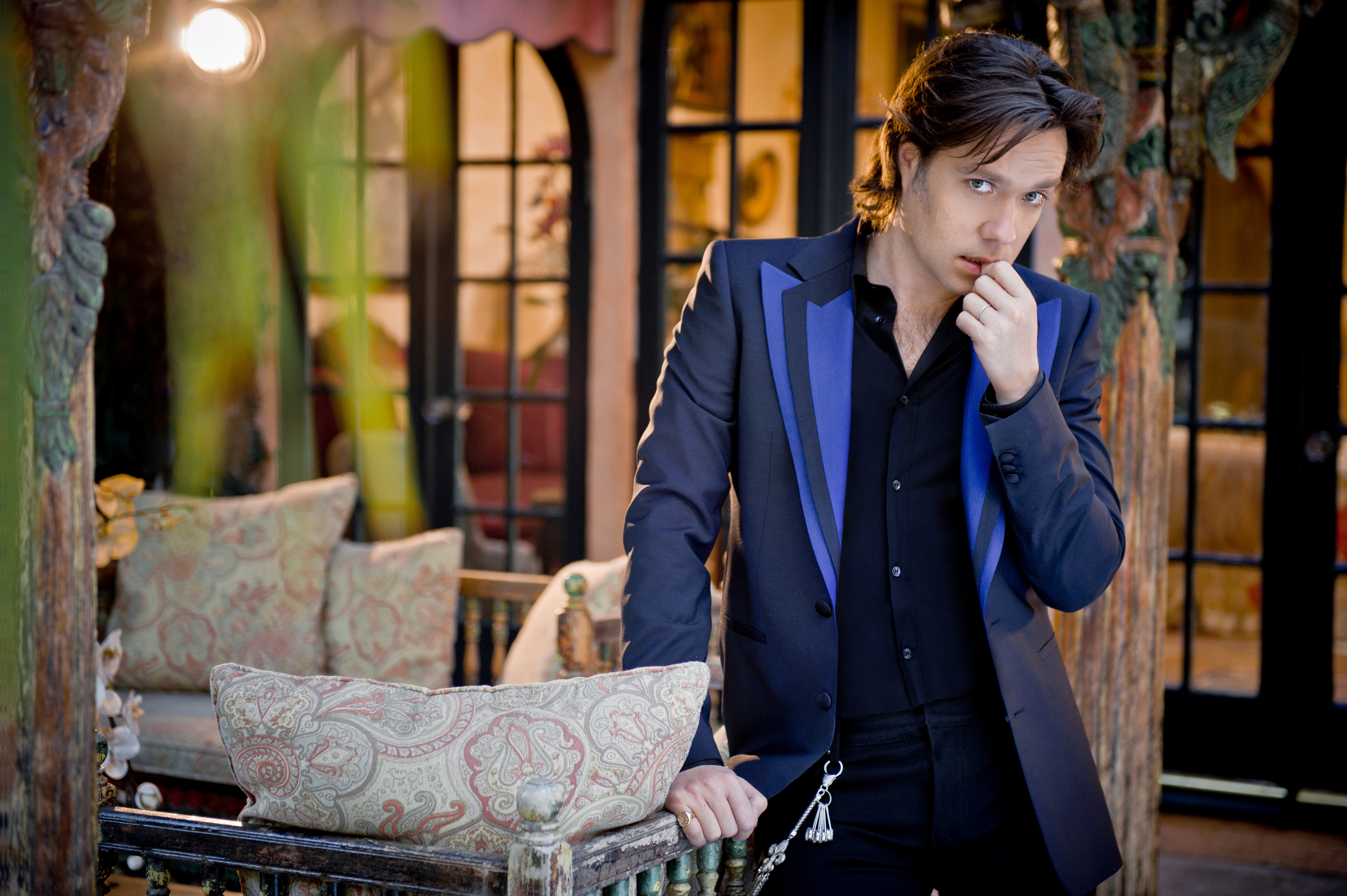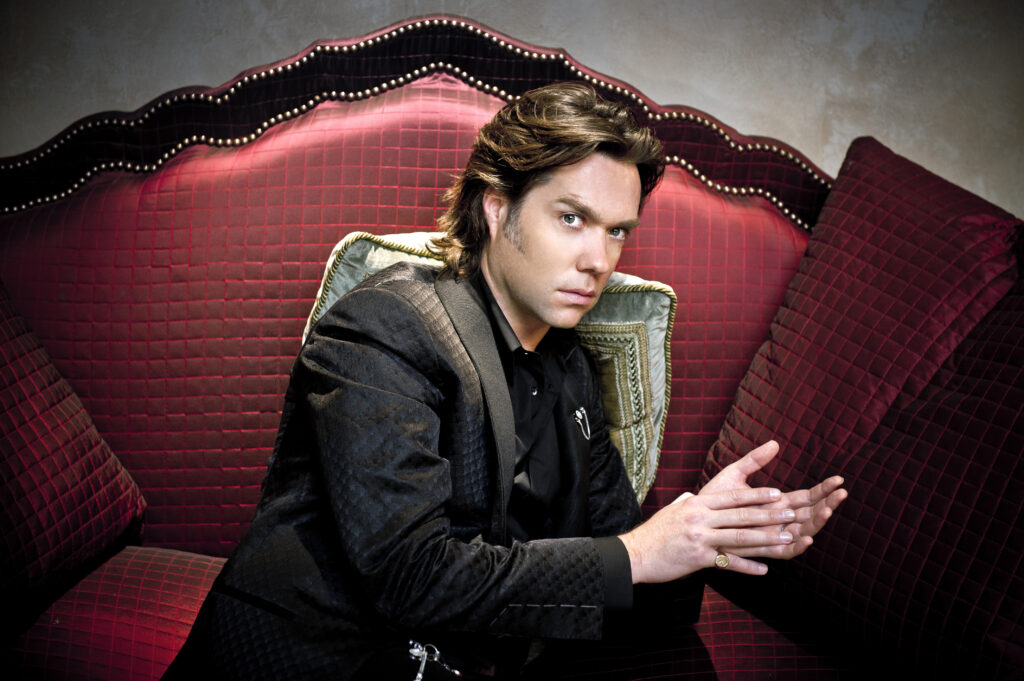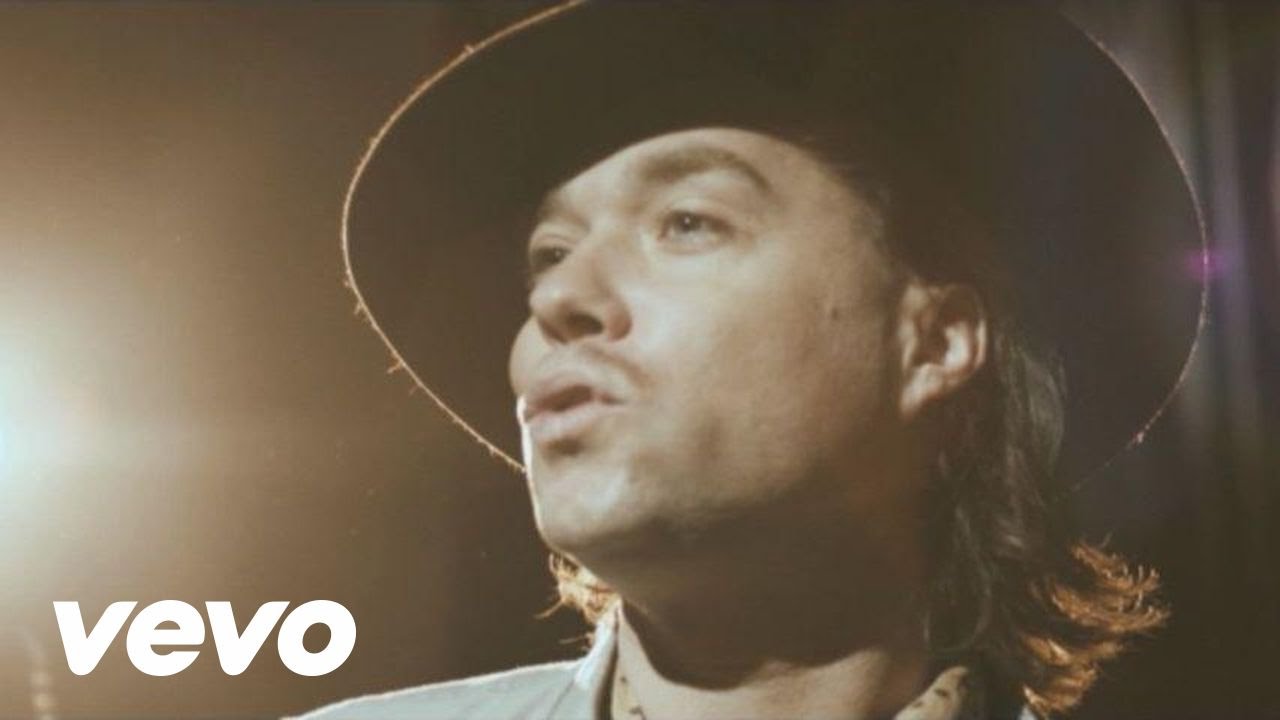Rufus Wainwright is one of the most popular and critically-celebrated singer-songwriters of his generation. Born into a musical family (his father is legendary folk singer Loudon Wainwright III and his mother was the equally-influential Canadian singer Kate McGarrigle, famous for duetting with her sister Anna, and Rufus’ sister and half-sister Martha and Lucy are also singers), he exploded onto the scene in the late-nineties with both his debut self-titled album and its follow-up, Poses.
Famous for his distinctive, deeply emotional voice and mastery of the piano, Wainwright has built up a vast following, and his prolific output includes a much-celebrated series of albums (Want I & II, 2003-2004), an opera (Prima Donna, 2009), seven studio and two live records. In addition he has collaborated with Burt Bacharach and Antony Hegarty, and headlined venues like Carnegie Hall and The Royal Albert Hall. Not to mention appearing at festivals like Glastonbury and The Hop Farm.
This year sees the release of Wainwright’s latest album, Out Of The Game, and a highly-anticipated world tour. In anticipation of both, The Quietus sat down with Rufus to discuss his latest album, the impact of his mother’s tragic death and the birth of his daughter on his work, and what it means to be a politically-minded singer-songwriter in today’s world.
Could you please give me a bit of background on your new album, Out Of The Game? When did you write these songs?
Rufus Wainwright: Well, the majority of them were written recently, after my mother’s death and the birth of my daughter. It was a pretty creatively fruitful environment, for the tragi-comedian that I am [laughs], so that was the main thrust. But we also had a bunch of demos and songs that were left over from previous albums. Mark Ronson perused them and ended up choosing a couple of tracks from them. ‘Welcome to the Ball’ and ‘Perfect Man’ were quite old songs. It kind of spans the gamut. But most of them are very, very new.
What was the thought process behind bringing in Mark Ronson to produce?
RW: Besides him being one of the most handsome men on Earth [laughs] and charming to boot, he’s also a genius in terms of capturing a certain vibe, a depth of sound and warmth of tone with his production team. He’s the full package and like any kind of decent pop venture it happened really fast: we went in and two months later the record was finished, and I think that’s a good omen for the record. There weren’t much adjustments that had to be made. We both wanted something from each other, and I think we both got it.
What was he like to work with?
RW: He’s so easy! He’s no pushover, by any means, he’ll be brutally honest if he’s not getting something; but on the other hand, it’s always with a kind of charming smile and you can’t help having a crush on him [laughs]. But that being said, I think he has, as he should, a lot of respect for me, as an artist, and for what I’ve done over the years, and he in no way wanted to efface that or quasi-modernise it. He just wanted it to be something that the kids would be more likely to understand or feel was more approachable. Arguably, I’ve made some very good albums, but one could also say that they were a little bit too elitist for the common listener. I think he wanted to bridge that gap, which is always good.
You have described Out Of The Game as your most “pop” album…
RW: I’ve also done that for four other albums, so I’m a little bit weary about throwing that exclamation around! But I guess so…
It’s a little bit lighter and warmer. Do you think the decision to make something a bit more upbeat was a reaction to some of your darker records like All Days Are Night and the recent passing of your mother?
RW: Oh definitely. Definitely. Whether it’s the concerts about my mom, or All Days Are Nights, or the opera, or even Rufus Does Judy At Carnegie Hall to a certain degree, which was an athletic kind of exercise; it was time to just have fun and relax and, um, have a party. And that for me is the main gist of this record: it’s an album you can put on at a party and people will sit around [laughs].
I suppose you’re also in a better place than you were before…
RW: Somewhat. I’m still very much dealing with my mother’s death. It’s been two years now, and I thought that after one year I’d be past a certain point, but I seem to have reverted back again, a little bit. Which is ok, it’s not as bad as it first was, but that for me is still the big issue that I’m coming to terms with. Certainly with my beautiful boyfriend and gorgeous daughter, and all that positive energy surrounding me, there’s a net there that I can depend on. But still, it’s so hard to get used to someone who’s not there that you were so close to. But when I made the album, I wasn’t thinking so much about my mom’s passing. I was just thinking about Mark’s hair!
It is quite incredible! You cited the likes of Elton John, Freddie Mercury and David Bowie as influences on this album. What was it about their sound that attracted you?
RW: There was this idea that there would be more of a glam theme on this record, which people have pointed out is not actually the case. One song, ‘Rashida’, is definitely glammy, but the rest is almost more related to earlier Elton John and there’s also some Fleetwood Mac and Harry Nilsson in there. But we just wanted it to be… good and kind of a journey, something that people could get lost in. That’s maybe where my expertise comes in and why Mark enjoyed working with me: the songs that I have to offer are these pretty epic journeys in themselves, whether it’s in terms of tempos or subject matter or grooves. There’s a lot of variety there, and he was able to string it all together and make it whole. But you need the different stones to make a necklace, you know?
One of the most remarkable songs on the album is ‘Montauk’, written for your daughter. Has becoming a parent impacted on your songwriting and recording?
RW: Well, I’ve written three songs about my daughter. One of them is on the album, I kinda thought I wanted to go lightly in that department, for the sake of my poor daughter [laughs]. It has [had an impact]. I’ve seen my daughter a dozen or so times, and she’s only a year old, so that’s actually quite a bit, but I do also know that once this tour gears up, which has started, it’s going to be a whole different story. I’m going to be working all the time, on the road traveling, and I won’t see her as much as I would like and perhaps as much as she would like, depending on what she wants. So there’s a little sadness there, but on the other hand, I grew up that way, Lorca [Cohen, daughter of Leonard, and the mother of Wainwright’s daughter] grew up that way, it’s just part of the family business: the men go out there and bring home the bacon [laughs].
So no decision to scale back a little bit?
RW: We’ll see what she wants. It’s hard for me to divine what will happen or her emotions at this point, because it’s so mysterious, what children go through. But I will say that the minute she says “Daddy I need you to come here”, I will oblige.

Can you tell me a bit about the title track? Given your increasing popularity and that you are quite a big name now, it’s hard to think of you as being “out of the game”!
RW: The title track is two things. One is that it’s tongue-in-cheek in this whole concept of, “I’m out of the game, but before I leave, here is what you’ve always wanted." That’s a bit of reverse psychology: “I don’t need you, you’re all I’ve ever wanted” [laughs]. That idea. The other, more literal, meaning is that it’s out of the game, that this product and my life, my songwriting and my performances it is from this game that I have created and that I’ve sprung. And whether it’s like “out of the closet” or “out of the gate”, y’know, it is about a departure, a kind of flowering.
Does it perhaps also relate to how your life has changed, how you’re not necessarily partying as much anymore, and so forth?
RW: I don’t think it’s as serious as all that. ‘Candles’, ‘Song Of You’, maybe even ‘Sometimes You Need’ and the last song have a lot of heavy messages, but aside from that I wanted it to be more playful. I didn’t want to be judging my life or others with big statements.
This kind of comes back to my earlier question, but would you consider Out Of The Game to be a more settled and mature album than previous works?
RW: Yes, very much so. I think it’s the first album I’ve made where I’ve been able to relax and do what I do, and it’s been properly kind of encapsulated and not too long and overbearing. I’m not going out on any huge limbs necessarily [on the album], but still there’s a vastness to what I’m trying to say and there’s a certain foundation which has taken many, many years to create, so I’m happy here to be able to do that.
Is there a theme running through the album, as there was on Want?
RW: I wouldn’t really say there’s a literal theme, no, but there is a sonic theme, which is arguably more important for a pop record. People are really listening more to the groove and the essence of the song when they’re in a pop frame of mind. I think we did accomplish that, the sonic theme. But no, you can’t [put a literal theme] because there’s two songs I wrote when I was 25 years old and then there are all these new songs. But it’s definitely a slice of my life.
Some of the musical elements on Out Of The Game are familiar from traditional American music like country, soul, gospel and rock & roll. Did that come from Mark Ronson, who is very much into those musics, or were you keen to draw on those things yourself?
RW: I brought the country element and the rock & roll, for sure. But a lot of it was just what the band brought to it. We had these amazing musicians, who were all members of the Dap-Kings at one point and had all played with Amy (Winehouse) a lot. But I don’t think, though they were well-versed in r&b and sixties pop and stuff, they had really that kind of curveball I was throwing, and they relished every moment of it and really worked on creating a really good support of sound. I think both Mark and I would credit the musicians with a lot of those directions that were taken.
You’ve teamed up with your sister Martha on this album, as you’ve done on record and live in the past. What does she bring to your music, apart from the fraternal bond?
RW: Well, she’s one of the greatest singers on the planet, first of all, and she’s also one of my favourite people in the world. Arguably my most favourite person, with Jörn, my boyfriend. But, especially since my mother died, Martha and I have grown exceedingly close, and really share this sadness together and therefore also a certain amount of happiness that we’ve been able to grow together as well. It’s the real deal, Martha and I.
She only came in for one day [on the album]. She has her own albums to make and her own songs to write. We’ve luckily been able to establish that difference between our careers. But every time we get together, it’s pretty magical.
Being part of a big musical dynasty, do you ever feel that there’s pressure on you to carry on a legacy?
RW: Oh yeah, there’s a pressure. But look at the Queen [laughs]! She’s done quite well, with what’s been thrown at her in terms of pressure. She’s a pretty steely woman. So, I’ll be fine [laughs].
By today’s standards, you’re remarkably prolific. Do you find that the inspiration for songs comes naturally, or do you have a process where you have to sit down at the piano and force yourself to write?
RW: Well, my dad had made maybe 30 albums by this point! Songs just come to me, whether I like it or not, and I do like it, so it’s a good thing. I very rarely have to sit down and say, “Now I have to write a song." I’m usually working on some little idea that has availed itself. I’m very fortunate with that. If I couldn’t write a song, it would be pretty traumatising. I’ve never had a huge massive hit, so I never have any record company pressure. If this all works out, who knows? But it’s been pretty easy-going so far.
Do you generally feel that each new album is your best, or do you have favourites among past works?
RW: No, there’s no way I can hold one child above the others! These albums are my first children; now that I have a child, it’s a bit confusing, because I really do regard them as my offspring. I think that with each album, and with each project, I kind of become another person myself and there’s a kind of cast of characters that’s forming around me with all these different experiences and existences that I’ve been fortunate to explore, so I look at it more of a group effort, shall we say, and this is the latest arrival. One day there will be a huge parade! [laughs].
In the past, you’ve kind of shied away from political statements, even if songs like ‘Gay Messiah’ can be seen as very political, but you’ve recently spoken of your desire to get married and have an ecological project [Blackoutsabbath]. Do these political views seep into your music?
RW: It’s very hard to live in America and not have a political stance, there’s such a kind of rampant right wing there that’s so vocal and given so much attention when they don’t really have that much power. Therefore, you have to speak up for your beliefs and for sanity, so I don’t want to be this way, but when you’ve got things like CNN giving so much air time to, like, the Tea Party, you’ve no choice.
As a singer-songwriter, do you think the era of the protest song could come back?
RW: A lot of it depends on this next election, because if, for some ungodly reason, the Republicans win the Presidency – and you really don’t know, with money and influence, how things might pan out – after all the things they’ve said and legislated, like blocking health care and union rights, I think we’ll all be out on the streets because we’ll have to be.
How are preparations for the tour you mentioned coming along? Will it be a full band?
RW: Full band, and there will definitely be a more relaxed, party atmosphere, and a celebration of existence. It’s a world tour, I think for a good year-and-a-half. This is a year of work and toil, but we will be rewarded.
Now you’ve completed Out Of The Game, and it’s coming out, are you working on any future projects, and will they be like this one, a reaction to what’s gone before?
RW: No, no more albums for a while. What I’m working on a lot are collections of my mother’s material, and we have a film that’s coming out on April 29th that’s gonna be at Sundance and here in London. So my sister and I are compiling her work and singing a lot of that material. It’s pretty amazing.
Will the arrangements be similar to the originals, or will you put your own stamp on them?
RW: They’ll be very different. We’ll figure out our own way to do it, but it’ll be very intimate. Very intimate. My mother’s catalogue is my great secret weapon and ulterior motive, because I really think it’s one of the most important of the last century, for sure. My mom was the real deal. I want to celebrate all of us, as much as I can. Martha, my sister Lucy: we’re all still here and we all still have something to say, and we should all just listen to each other. And then scream. [laughs]
Out Of The Game is released April 23rd on Polydor. Rufus plays The Lyceum on April 30th



